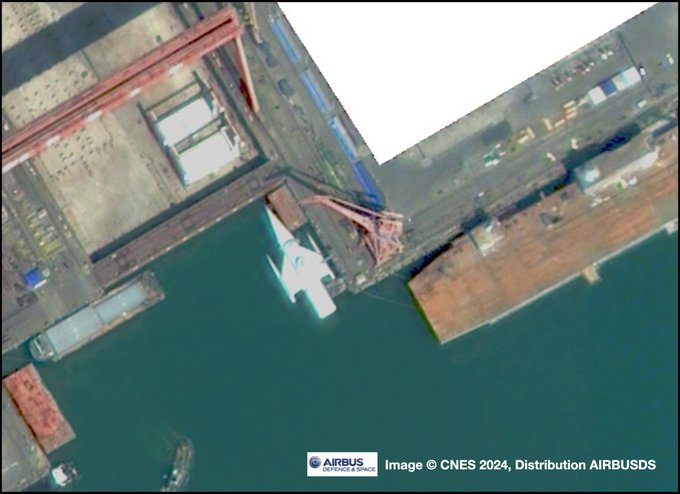A mysterious large flattop has been spotted at a shipyard in southeastern China. The vessel does not look like any other ship that China is developing, indicating that the country may be working on an entirely new design and class of vessel, Eurasian Times reports.

